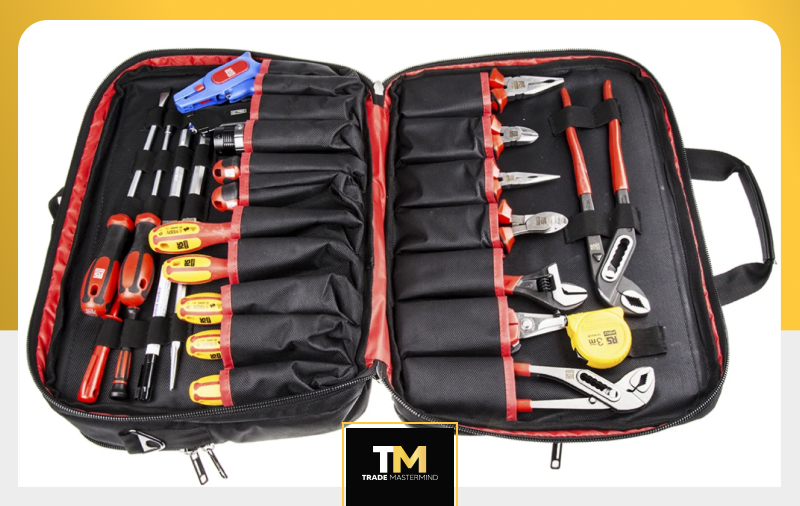Building a scalable business model is essential for long-term success. As demand for heating, ventilation, and air conditioning services continues to grow, HVAC contractors must develop strategies that allow them to expand without sacrificing quality or customer satisfaction. This blog will explore the key components of creating a scalable HVAC business, providing actionable insights and strategies to help you thrive in this competitive market.
Understanding Scalability in HVAC
Scalability refers to the ability of a business to grow and manage increased demand without compromising performance or quality. For HVAC businesses, this means having systems and processes in place that can handle more customers, larger projects, and expanded service areas efficiently. A scalable HVAC business can adapt to changing market conditions while maintaining profitability.
Why Scalability Matters
- Increased Revenue Potential: A scalable model allows you to take on more clients and projects, leading to higher revenue without a proportional increase in costs.
- Operational Efficiency: Streamlined processes and systems enable your team to work more effectively, reducing time spent on administrative tasks and increasing time spent on service delivery.
- Market Adaptability: A scalable business can quickly respond to market changes, such as seasonal demand fluctuations or shifts in customer preferences.
- Attracting Investment: Investors are more likely to support businesses with proven scalability, as they represent lower risk and higher potential returns.
Key Components of a Scalable HVAC Business Model
1. Diversified Service Offerings
Expanding your service offerings is crucial for creating a scalable HVAC business. Consider adding complementary services that cater to a broader range of customer needs:
- Indoor Air Quality Solutions: With increasing awareness of air quality issues, offering services like air purification and duct cleaning can attract new customers.
- Smart Home Technology Integration: As smart home devices become more popular, providing installation and maintenance services for smart thermostats and home automation systems can set your business apart.
- Preventive Maintenance Contracts: Establishing maintenance agreements with residential and commercial clients ensures steady income throughout the year while fostering long-term customer relationships.
2. Streamlined Operations
To scale effectively, your operations must be efficient and well-organized. Implement the following strategies:
- Standard Operating Procedures (SOPs): Develop SOPs for all aspects of your business, from customer service to installation processes. This ensures consistency and quality across your team.
- Field Service Management Software: Invest in software that helps manage scheduling, dispatching, and invoicing. This technology improves efficiency by automating routine tasks and providing real-time data on job progress.
- Inventory Management Systems: Implement systems that track inventory levels and usage patterns. Efficient inventory management reduces costs and ensures you have the necessary materials on hand for each job.
3. Effective Marketing Strategies
A strong marketing strategy is essential for attracting new customers and retaining existing ones. Focus on:
- Online Presence: Create a professional website that showcases your services, customer testimonials, and contact information. Utilize search engine optimization (SEO) techniques to improve your visibility online.
- Social Media Engagement: Leverage platforms like Facebook, Instagram, and LinkedIn to connect with potential customers. Share valuable content related to HVAC tips, energy efficiency, and company updates.
- Customer Referral Programs: Encourage satisfied customers to refer friends and family by offering incentives such as discounts on future services or gift cards.
4. Building a Skilled Workforce
A scalable HVAC business relies on a skilled workforce capable of handling increased demand. Consider the following approaches:
- Recruitment Strategies: Develop a recruitment plan that attracts qualified technicians who align with your company values. Utilize job boards, industry associations, and local trade schools to find talent.
- Training Programs: Invest in ongoing training programs that keep your team updated on the latest technologies, safety protocols, and customer service practices. A well-trained workforce enhances customer satisfaction and operational efficiency.
- Employee Retention Initiatives: Foster a positive work environment by offering competitive pay, benefits packages, and opportunities for career advancement. Retaining skilled employees reduces turnover costs and maintains service quality.
5. Financial Planning
Effective financial management is crucial for scaling your HVAC business sustainably:
- Budgeting for Growth: Create a detailed budget that accounts for expansion costs such as hiring new staff, purchasing equipment, or investing in marketing initiatives.
- Cash Flow Management: Monitor accounts receivable closely to ensure timely payments from clients. Implement efficient invoicing processes that facilitate cash flow during growth phases.
- Funding Options: Explore various funding options such as small business loans or lines of credit to support expansion efforts without straining cash reserves.
Overcoming Challenges in Scaling Your HVAC Business
While building a scalable HVAC business presents numerous opportunities, it also comes with challenges:
- Managing Increased Demand: As your customer base grows, ensure that your team is adequately staffed and trained to handle the influx of work without compromising service quality.
- Maintaining Customer Satisfaction: Prioritize customer service by actively seeking feedback and addressing any concerns promptly. Happy customers are more likely to refer others and become repeat clients.
- Adapting to Market Changes: Stay informed about industry trends and emerging technologies that may impact your business model. Flexibility is key to adapting your offerings as needed.
Final Thoughts
Building a scalable HVAC business requires strategic planning, effective operations management, diversified services, skilled personnel, and sound financial practices. By implementing these strategies, you position your company for sustainable growth while maintaining high standards of service quality.
Trade Mastermind offers valuable resources tailored for HVAC contractors looking to enhance their business models for scalability. With the right approach in place, you can create a thriving HVAC business that not only meets current demand but also adapts seamlessly to future challenges.
By focusing on these essential components of a scalable HVAC business, you can ensure long-term success in an ever-evolving marketplace while maximizing opportunities for growth and profitability.






